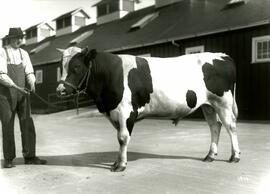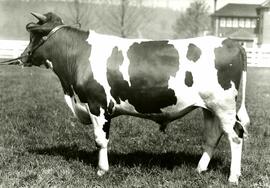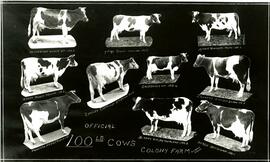Zona do título e menção de responsabilidade
Título próprio
Riverview Hospital Historical Society collection
Designação geral do material
- Material gr?fico
- Documento textual
- Desenho arquitet?nico
- M?tiplos suportes
- Imagens em movimento
Título paralelo
Outra informação do título
Título e menções de responsabilidade
Notas ao título
Nível de descrição
Cole?
Entidade detentora
Código de referência
Zona de edição
Menção de edição
Menção de responsabilidade da edição
Zona de detalhes específicos de materiais
Menção da escala (cartográfica)
Menção da projecção (cartográfica)
Menção das coordenadas (cartográfico)
Menção da escala (arquitectura)
Autoridade emissora e denominação (filatélica)
Zona de datas de criação
Data(s)
-
1870 - 2020 (Produ?)
Zona de descrição física
Descrição física
4,278 photographic negatives and prints : b&w and col. ; multiple processes ; multiple dimensions
4.78 m of textual records
1.39 MB of of digital textual records
12 plans and drawings : photocopies, lithographs, and blueprints ; in pencil and ink ; on linen and paper ; multiple dimensions
6 DVD-RWs: 13.3 GB of digital video materials and textual records
5 videocassettes: MiniDV ; col. ; digital ; SP
4 guest books : mutliple dimensions
3 scrapbooks : multiple dimensions (including newspaper articles, photographs, and ephemera)
2 videocassettes : analog ; col. ; VHS ; NTSC ; sd.
2 DVD-Rs: 814 MB of digital video materials and textual records
2 photograph albums : multiple dimensions
2 posters : col. ; 91 x 61 cm
1 poster : b&w ; laminated ; 43 x 57.5 cm
1 document attached to plywood : 76 x 88 cm
1 hard drive : 89.1 GB of digital video materials and textual records
1 pin : silver metal ; blue, white, and yellow crest ; engraved
1 book : 186 pages ; 23 x 15 cm
Zona dos editores das publicações
Título próprio do recurso continuado
Títulos paralelos das publicações do editor
Outra informação do título das publicações do editor
Menção de responsabilidade relativa ao editor do recurso contínuo
Numeração das publicações do editor
Nota sobre as publicações do editor
Zona da descrição do arquivo
Nome do produtor
História administrativa
The British Columbia School of Psychiatric Nursing was established at East Lawn, Riverview Hospital (then the Female Chronic Unit and Essondale Hospital, respectively) in 1930. It was the first training school of its kind in B.C. When the unit opened in 1930, there was an immediate need for trained psychiatric nurses. Firstly, a six-month post-graduate course was offered to train registered nurses quickly, whereupon they became supervisors for new nurses enrolled in the course. In 1931, a nursing instructor, Miss C. A. Hicks, was appointed and the School expanded from a single course to a two-year psychiatric nursing program. The first graduates from the School received their diploma in 1932. That year, the program was extended to a three-year term which continued until 1951 when it again became a two-year program.
Because of the historical gendered beliefs held by the medical profession at the time, psychiatric nurses and students were female. With roots in Victorian viewpoints on gender, women were considered to be best equipped for nursing because they were considered to possess a moral capacity and natural compassion suited to patient care. Men were initially only considered mental hospital attendants. However in 1937 the School opened its enrollment to male psychiatric nurses.
Prior to 1951, psychiatric nursing was not a regulated profession in British Columbia and students enrolled in the program were employed as civil servants. With the establishment of the Psychiatric Nurses Act (1951) graduates were bound by standards of practice and education and were not considered civil servants until the successful completion of the program.
Riverview Hospital remained the home of the School of Psychiatric Nursing until 1972. But due to a decline in patient population, the School moved to the British Columbia Institute of Technology in and was renamed the Psychiatric Nursing program. The last class from the Riverview Hospital program graduated in 1973.
Due to Provincial budget cuts in 1984, the Psychiatric Nursing program was reduced to a one-year program and moved to Douglas College, where it remains today.
Nome do produtor
História administrativa
The Riverview Hospital Historical Society was incorporated on December 17, 1997 and was registered with as having charitable status on April 1, 1998. Its structure included a President, Vice-President, Secretary, Treasurer, and two Directors. The Society's mandate was to document the history of psychiatric care in BC and specifically Riverview Hospital and to preserve specialized equipment, furniture, artefacts, textiles, etc. relevant to the daily life of patients and staff at Riverview. The Society established and maintained a museum, which was accessible to the general public and the academic community, as well as staff, patients, and family members. The museum closed in 2012 when the hospital itself was closed down. At this time, ownership of the collection was transferred to City of Coquitlam. The Society continues to serve as an historical resource through lectures, displays and presentations under the direction of President, Anna Tremere.
Nome do produtor
História administrativa
Riverview Hospital was a Canadian mental health facility in Coquitlam, British Columbia. It operated as the Province’s specialized psychiatric hospital from 1913 until it closed in 2012. The hospital is located on səmiq̓wəʔelə in Halkomelem language, the Place of the Great Blue Heron, where Kwikwetlem First Nation took shelter for thousands of years. By the beginning of the 20th century, traditional healing knowledge in the area was supplanted by settler colonial medical practice.
Riverview Hospital was operated directly by the Province, originally under the Insane Asylums Act (1873), the Mental Hospitals Act (1940), and the Mental Health Act (1964) until 1988. A re-evaluation of contemporary approaches to mental health care through the 1960s to the mid-1980s brought about change to mental health service development in British Columbia. The Province created the British Columbia Mental Health Society (BCMHS) in 1988 and gave it the task of running Riverview pursuant to provincial health legislation. The BCMHS board began as Provincially-appointed trustees but by 1992, it was replaced by a community-based board of governors. After the establishment of the Provincial Health Services Authority (PHSA) in 2001, Riverview Hospital fell under the jurisdiction of its Mental Health & Addiction Services (now the BC Mental Health & Substance Use Services).
In 1904, the Province purchased 1,000 acres in Coquitlam for the construction of a new mental hospital (as well as Colony Farm) due to overcrowding at the Royal Hospital in Victoria and the Public Hospital for the Insane in New Westminster. Originally called the Hospital for the Mind at Mount Coquitlam, the hospital was named Essondale Hospital in honour of Dr. Henry Esson Young shortly after its opening. Young was the Provincial Secretary and Minister of Education and was responsible for establishing and managing the hospital.
The first building, West Lawn (then, the Male Chronic Wing) opened in 1913 to serve male patients. The patient population grew rapidly and soon led to more overcrowding. In 1922 the Boys’ Industrial School of Coquitlam (BISCO) opened to provide education, industrial training, and juvenile reform to boys sentenced to confinement by law. To accommodate more patients, Centre Lawn (then, the Acute Psychopathic Unit) opened in 1924. In 1930, East Lawn (then, the Female Chronic Unit) opened to ease crowding of female patients at the Public Hospital for the Insane in New Westminster.
After the First World War, more spaces for war veterans were needed to meet the overcrowding and West Lawn and Centre Lawn. Thus a new Veteran's Unit opened at Essondale Hospital in 1934. In 1936, BISCO was moved; the school underwent renovation and reopened as a geriatric care unit called the Home for the Aged (later, Valleyview). This unit was administered under the Provincial Home for the Aged Act (1935). After the Second World War, veterans were moved to the Riverside unit on Colony Farm grounds. The original Veteran’s Unit expanded and became the Crease Clinic of Psychological Medicine, which opened in 1949 and operated under separate health legislation than Essondale Hospital. The Crease Clinic allowed for voluntary admission of patients who could terminate their hospitalization at will. In 1950, Essondale Hospital changed its name to Provincial Mental Hospital, Essondale. North Lawn (then, the Tuberculosis Unit) opened in 1955 to stem the spread of the tuberculosis common in the hospital's other units. By 1956 there were over 4,700 patients at the Provincial Mental Hospital, Essondale, the Crease Clinic, and the Home for the Aged combined.
In 1959 the charge of mental health services was transferred from the Provincial Secretary to the new Department of Health Services and Hospital Insurance. That year, the Valleyview geriatric care unit opened. Five years later in 1964, the British Columbia Mental Health Act was enacted. The Crease Clinic amalgamated with Essondale Provincial Mental Hospital in 1965 to function as one facility named Riverview Hospital. That same year, the Riverside unit was converted to a maximum security facility and was renamed the Forensic Psychiatric Institute.
From the 1960s to the 1980s Riverview Hospital began to face changes because of deinstitutionalization. Patient populations declined at Riverview Hospital due to a move toward outpatient care and community based centres for mental health services. Although Riverview Hospital was given formal status as a teaching hospital affiliated with the University of British Columbia in 1974, by 1981 patient population had dropped and parts of the hospital were closed and sold off to developers. In 1983, West Lawn closed and farming operations at Colony Farm were discontinued. Next followed twenty years of unit closures: Crease Clinic (1992), East Lawn (2005), North Lawn (2007), and in 2012, the last patients were moved from Centre Lawn. That year Riverview Hospital ceased its operations.
Currently, the Riverview Lands are home to three lodges where long-term intensive psychological rehabilitation is provided for individuals, administered through Fraser Health’s Mental Health network of services.
História custodial
The material in this collection was the property of the Riverview Hospital Historical Society and was housed in its museum on the Riverview grounds until 2012, when the hospital was closed. At this time, the majority of the documentary heritage collection housed in the museum was transferred to the BC Government Records Service for scheduling and eventual transfer to BC Archives.
In 2012, the museum’s artifact collection was transferred to the care and custody of the Parks and Recreation Department of the City of Coquitlam. It was later discovered that this collection included some archival records. A review of the collection by the City Archivist revealed a number of government records, which were transferred to the BC Government Records Service. The remaining records were formally transferred to the custody of the City of Coquitlam Archives in 2018.
The provincial records schedule for the Riverview records was approved in 2018. The schedule identified a number of records for “Other Disposition,” which were transferred to the City of Coquitlam Archives in 2019. This accrual was added to the existing collection along with a number of accruals from the former President of the Riverview Hospital Historical Society.
Âmbito e conteúdo
The Riverview Hospital Historical Society collection consists of the records collected and maintained by the Riverview Hospital Historical Society (RHHS). Through their museum and library, the RHHS acquired and stewarded records documenting the history of Riverview Hospital, the British Columbia School of Psychiatric Nursing, and the history of psychiatric care in British Columbia.
The collection consists of a range of documentary forms, including: reports, theses, newspaper clippings, newsletters, publications, correspondence, manuals, plans and drawings, directories, inventories, procedures, programmes, annuals, invitations, motion pictures, personal narratives, staff lists, minutes, study notes, scrapbooks, ephemera, and photographs depicting aspects of social and administrative life at the hospital and school.
The collection is arranged into ten series that reflect original collections maintained by the RHHS, and are organized by media type or content. See the Arrangement note below for more information.
Zona das notas
Condição física
Some glass negatives are damaged and some cellulose acetate negative sheets and cellulose acetate film strips are exhibiting signs of image silver deterioration.
Most textual records remain in fair condition but some are printed on acidic wood pulp paper and are very brittle. They require gentle handling. Other textual materials are photocopied on thermographic paper and are exhibiting standard rates of degradation. Some cartographic records and architectural drawings are ripped and deteriorating.
Consult finding aids and lower level descriptions for more details on physical condition.
Organização
Upon arrival to the archives, the collection showed no discernible order. The archivist arranged the collection into ten series based on the medium and content of the records. The arrangement is as follows:
S01: Photographs
S02: Riverview Hospital Plans and Drawings
S03: Riverview Hospital Publications and Communications
S04: Riverview Hospital Administrative and Event Records
S05: Riverview Hospital Historical Society Administrative and Operational records
S06: News Clippings
S07: Reference Materials
S08: School of Psychiatric Nursing Records
S09: Personal Collections
S10: Colony Farm Records
Within these divisions, some series contain subseries. Please consult the lower level descriptions for more detailed arrangement notes.
Idioma do material
- inglês
Script do material
Localização de originais
Disponibilidade de outros formatos
Copy prints and scanned digital copies are available. Consult item level descriptions or the Finding Aid for more information.
Restrições de acesso
Some files contain personal information. See the Reference Archivist for more information.
Termos que regulam o uso, reprodução e publicação
Some photographs are under copyright. See the Reference Archivist for more information.
Ask the archivist for assistance unfolding or moving cartographic records and architectural drawings as well as assistance unfolding or refiling newspaper clippings and brittle textual records as to minimize further damage to the degrading records.
Instrumentos de descrição
Consult finding aids and lower level descriptions for more detailed scope and content, as well as box numbers, and physical condition information
Materiais associados
John Davidson and Ultan Patrick Byrne have associated materials in other repositories. See their file-level descriptions in S09 Personal Collections for more information and links to additional records.
Ingressos adicionais
Further accruals are expected.
Nota geral
PLEASE NOTE: Since Essondale Hospital was a provincial institution, its patient records are held by the Provincial Archives.
Contact them here: The BC Archives database (https://search-bcarchives.royalbcmuseum.bc.ca/). The City of Coquitlam Archives does not have patient records in its collections.
The City of Coquitlam’s holding largely relate to the nursing school as well as work and social life of hospital staff.
Content Warning: Accessing and viewing records within the Riverview Hospital Historical Society collection may be upsetting or traumatic for former patients and their families. The collection contains records, manuscripts, and photographs of medical treatments and therapies shaped by the historical understanding of psychiatry and mental illness. Records also reflect the attitudes and language of the historical period that now is considered derogatory or offensive.
If at any time you feel the need to speak with someone or need emotional support call 310-Mental Health at 310-6789.
Identificador(es) alternativo(s)
Zona do número normalizado
Número normalizado
Pontos de acesso
Pontos de acesso - Assuntos
- Agriculture
- Animals » Cattle
- Animals » Horses
- Animals » Pigs
- Buildings and structures
- Communications
- Community life
- Construction
- Cultural groups
- Education
- Events and celebrations
- Family and personal life
- Finance
- Health and social services
- Hospitals
- Labour and employment
- Nursing
- Wars » Second World War
Pontos de acesso - Locais
Pontos de acesso - Nomes
- Riverview Hospital Historical Society (Coletor)































